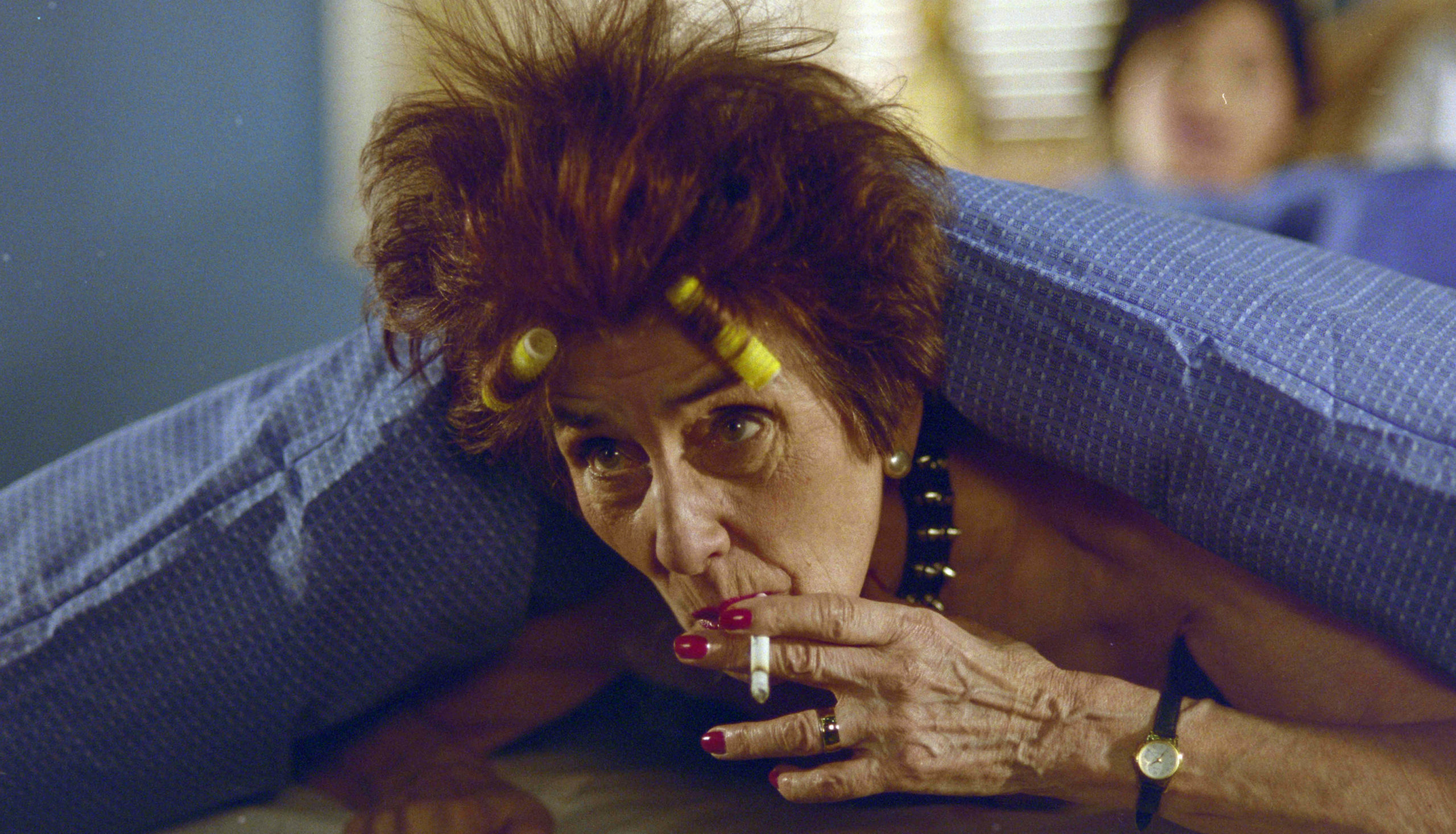The actor June Brown has died, and with her ends an era. Her most famous character, Dot Cotton, whom she played in EastEnders between 1985 and 1993 and then from 1997 onwards, exemplified everything that is superb about British working-class women of a certain generation.
Chain-smoking Dot, long-suffering mother of Nasty Nick, wore her headscarf with pride, and was far less of a parody than the likes of Corrie’s Hilda Ogdon. Rather, Dot was a real-life character that those of us raised by such women recognised. She wore too much make up, clutched her cardigan at her breast, and took liberties left, right, and centre.
Dot was very much like the mothers and grandmothers on the estate where I was raised. Her first words in 1985 were: “Give us a tea, Lofty. And a glass of water so I can take a paracetamol.” Of course, she was a hypochondriac, but rarely seen in a sickbed. Simultaneously nailed to a cross and tough as old boots, Dot made us laugh, cry, and sigh with frustration, often all at once.
Given the run-around by bad men, namely her husband and son, female viewers empathised with her. In 1990, Nick planned on killing his mother by poisoning her dinner in order to steal her bingo winnings, but changed his mind at the last moment. But Dot was no martyr: she was too resourceful for that. Women of her generation and class background had to be canny and look after themselves, because nobody else would.
Like those I was raised with, Dot had proper, loyal friendships with other women. Despite her strict Christian beliefs, she agreed to help her terminally ill best friend Ethel to die by giving her morphine. The episode, watched by more than 16 million, showed Brown’s superb acting skills to a tee.
In 2015 Dot’s son confessed to several murders, and in response, she gave him heroin and chose not to call an ambulance when he overdosed. “I prayed to let Jesus decide whether you get better or whether the world was a better place without you.” This showed how, as much as she had been taken for a mug by the men in her life, Dot had her limit.
And nor was she keen on change. Following a four month stretch in jail for Nick’s manslaughter, Dot decided to leave her job at the launderette where she had worked for decades, having heard it was to become a dry cleaners.
Dot’s wit, warmth and sheer chutzpah made her a working class icon to aspire to, despite the difficulties life threw at her. Tough and tenacious, when Dot was floored, she would pick herself up, dust down her apron, and live to fight another day.
Constant cups of tea, pink acrylic dressing gown — she was so much like my grandmother, and in many ways, Brown the actor appeared to be similar to Dot. Four years ago, aged 91, Brown told a journalist there was no point giving up drinking and smoking because she was bound to die soon in any case.
The passing of June Brown and her character Dot might mark the end of representation for these indefatigable grand dames of working-class stock. I mourn that passing, because, clichéd as it sounds, such women are the bedrock of society.











Join the discussion
Join like minded readers that support our journalism by becoming a paid subscriber
To join the discussion in the comments, become a paid subscriber.
Join like minded readers that support our journalism, read unlimited articles and enjoy other subscriber-only benefits.
Subscribe